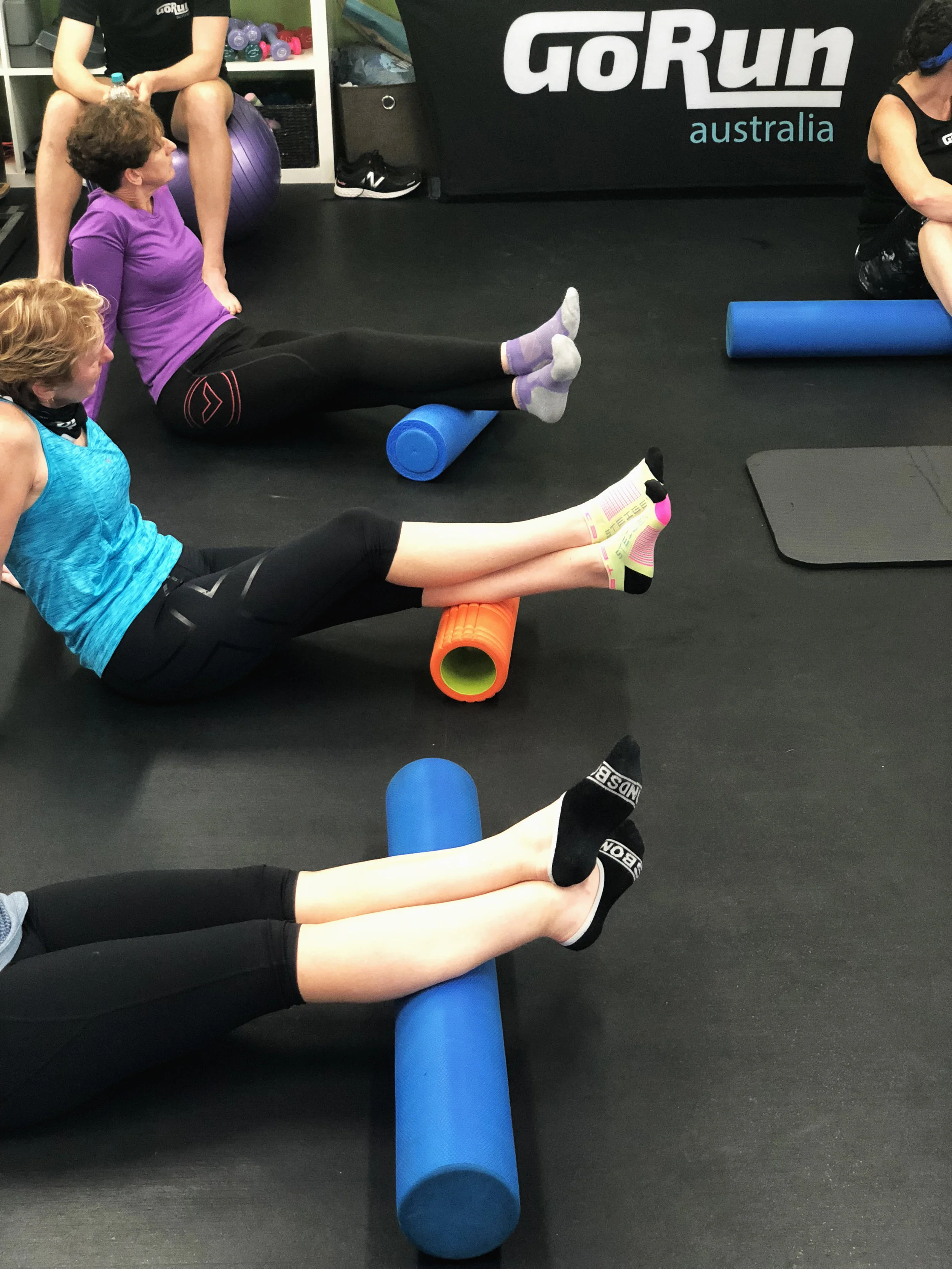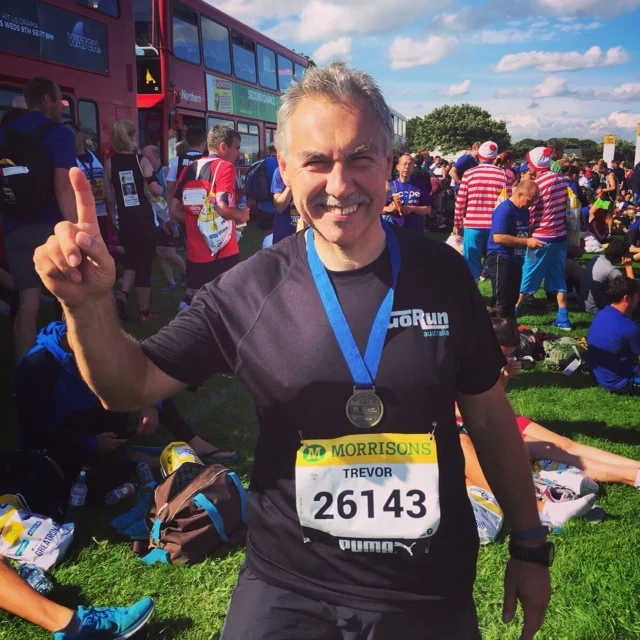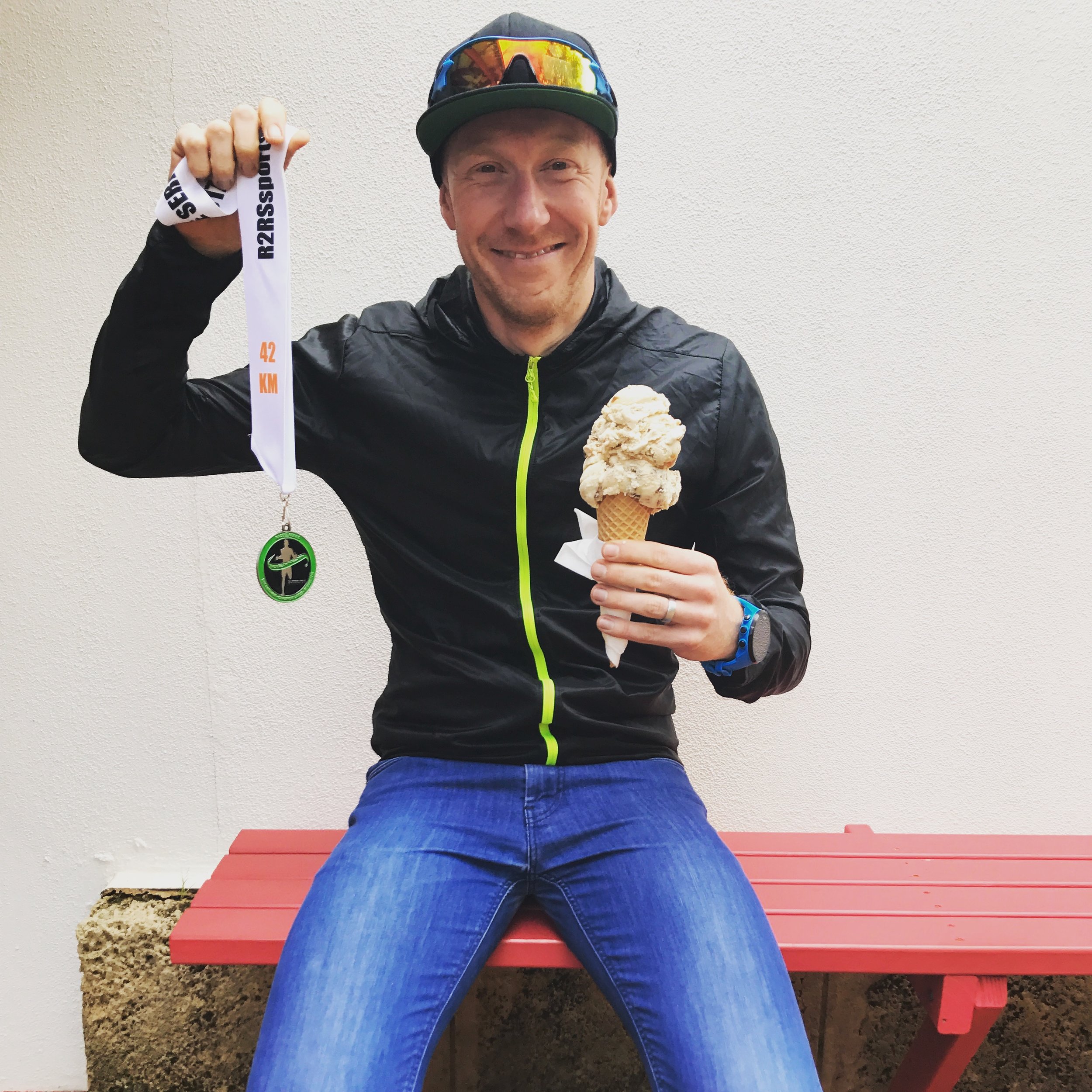Thursday Thoughts: Movement is Medicine
Are we in danger of data overload?
Coach Kylie and I were lucky enough to get an invite to the recent Sports Analytics Conference in Melbourne, courtesy of the awesome team at Red Bull. Now...I’m definitely not a data nerd but I am intrigued by the use of technology in running, triathlon and other sports. To be honest, I am less intrigued by the technology itself, and more our use of it and the interpretations that come from it.
There were hundreds of people in attendance from all over the world and presenters from professional sports organisations in the USA, Spain, Sweden, UK, Australia and beyond. Some of the most recognisable names of clubs in sport were on the attendee lists and it was a great opportunity hear some of the themes and debates and potentially apply these to the everyday runner.
So, what did we learn?
Too Far, Too Fast, Too Often.
We’ve all been there as beginners, even some of the fastest runners you know probably began with those awkward, embarrassing first runs / walks and suffered from the same things that we do, but even with that in mind, I did not expect people of all experiences, shapes, sizes, abilities, ages to contribute to this debate. I don’t know what I expected to be honest, but certainly not the detail and emotive comment that I got back. The responses certainly gave me a renewed want to try and help people by addressing these issues in my coaching.
One of the main issues that came through in the responses was that of wanting to go longer, harder and faster every time you run.
5 things that a first time marathoner needs to know.
6 Tips for Great Recovery
One of the areas that worries us most as runners is injury. In particular, how is your body going to deal with building for events like the marathon, as well as the demands of every day life? Having teamed up with the Physios at Port Melbourne Physio and Pilates, we took the liberty of asking them their advice on RECOVERY in the hope that their words of wisdom would keep us injury free and running at our best in the longer term. As health professionals who regularly treat recreational runners with injuries and as runners themselves, who better to chat with about getting our recovery right, than our physio friends?!
The 80/20 of Running
Even in my few short years coaching recreational runners to achieve their goals, you can start to pick out a few key themes and messages that are likely to stand the test of time and outlast whatever the latest, hilarious marketing trends of the week are.
One of those key messages is the importance of the mental side running, as opposed to the physical side.
We Fall to the Level of our Training
An old coach of mine had a very simple saying, "finish at the finish."
Seems simple enough to do, right?
In a race or event, this absolutely makes sense but he also used to say this during almost every training session. Whether it was an easy recovery run or a hard interval session, 'finish at the finish' still rings true. Just like you can’t imagine stopping your race 100 metres before the finish line, nor should you imagine this during training. We are creatures of habit and by finishing actually at the finish and not before, we are looking to create a positive habit that is reinforced in each and every session, not just when the coach is looking.
From Surgery to Half Marathoner - Shannon's Running Story
How to stop digging and start recovering
Lots of runners are keen to do the physical running that forms the bulk of their training, but not so keen to get the right amount of rest and recovery that will actually enable them to run at their best. Unfortunately this is an all too common approach that many recreational runners as they dig themselves into physical holes or repetitive cycles of injury, which could have been avoided through adequate rest and recovery.
Given that we are coaching and running in the ‘endurance sports’ space, the number of hours spent training and the subsequent stress that we on our bodies, is high. As a result, we have got to make sure that we recover adequately and give something back to our bodies.
So what can we do ourselves to help our own recovery?
Shin Splints: What are they and how to treat them?
Ask most runners about injuries and at some point they will talk about shin splints. For many beginner runners in particular, this injury is the one that stops them running and stops them from gaining that all important consistency. As a coach I have seen this injury crop up a few times, so I decided to ask our resident physio, Sally Maple from Port Melbourne Physio and Pilates to give me some expert advice on shin splints, what they are, why they occur and how we can treat them.
So what are shin splints?
Don't Panic! How to Start Your Melbourne Marathon training on the right foot
The Melbourne Marathon Festival is now not far away! Many runners are in the midst of their training for one of Australia’s biggest and most prestigious marathon events. The finish line at the MCG awaits but first the real work of training has to be done. The few months of running, recovery and planning will be challenging, but there are a few fundamentals that each of us need to stick to, no matter what pace or distance goals are.
Here are five of my top pieces of advice to surviving and flourishing over the next few months before your victory lap around the G’:
Older Doesn't Mean Slower!
We love to share the stories behind our awesome runners, and this one is a treat. This is Trev, who is the first runner that Coach Chris ever coached, and his dad!
Trev is now a spritely 65 years old and has run for recreation and fitness for over 30 years, completing 6 marathons (all of them under 4hrs 15 mins), over 20 half marathons, plus many other shorter races road and trail races. Over a 14 week period, he was coached and prepared for the Great North Run half marathon, which takes place in his home town of Newcastle (UK) in mid September every year.
Run / Walking Busselton Marathon... and loving it!
Sydney Marathon (Marathon 13) was a really tough experience, both on the day and in the week after. I felt like I had lost fitness, re-injured an old achilles problem and gotten very glum in the process of it all. Not ideal.
Fast forward 3 weeks and the 17 marathons fun bus was heading over to Western Australia. This was my first ever trip to W.A and I was travelling there to run Busselton Marathon on Sunday 8 October. Whilst I still had the nagging achilles issue that was stopping me from running, I was grateful to be feeling way more positive in the lead up to this one. I was worried about my ability to complete the run, but positive nevertheless. I was particularly worried when I discovered the day before that I hadn’t actually signed up to the run at all! OOPS!! I am starting to believe that there is such a thing as 'runners brain’…. its a thing….
Now I know what 11 laps of The Tan feels like...
Last weekend was awesome...
Marathon 12 was back on home turf, running 11 laps around the Tan Track in Melbourne, following some time away for Alice Springs Marathon the previous weekend. I was really pleased with what I had done in Alice Springs and my aim for this marathon was simply to improve on that time of 3:22, only 7 days later. I enjoy the challenge of backing up marathons one week after another and it gives the second run a bit more purpose. I seem to get that little bit more determined to not be slower or fade at all. It’s like a giant 'negative split' I suppose.
On race morning, I had woken up early to the sound of torrential rain and howling wind at about 5 am. Bugger. The thought crossed my mind to just drop the run, eat lots, drink wine and simply reschedule, but the thought of then trying to fit another marathon into the remaining 4 months of the year, persuaded me to get my arse out of bed and get cracking on some coffee and breakfast.















